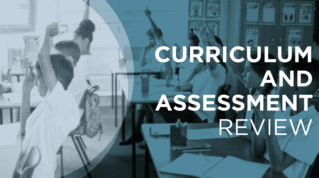At the time of the youth strikes, early last year, Anita was working with her primary class, when nine-year-old Sophie asked her a question she struggled to answer. “Miss, do we have only ten years to save the planet?”
As teachers and parents, we often grapple with children asking difficult questions to which we don’t have the answer. We cannot avoid such uncertainty. So the challenge is how to educate children to engage with climate change in ways that do not paralyse them with fear of the future.
We have always lived with uncertainties, and always will. For our generation it was the threat of nuclear war, and for those before, it was the world wars; more recently, it has been the pandemic. Climate change looms larger still.
Teaching climate facts is important, but alone they are stark and anxiety-inducing. The latest IPCC report models five possible planetary futures. The most promising sees an estimated rise of 1.6 degrees Celsius by the middle of the century, reducing to 1.4 by the turn of the century. The most concerning sees temperatures rising to 4.4 degrees Celsius by the end of 2100.
Younger generations are often talked about as our hope. They will study hard and their lifestyle choices and innovations will solve climate change. In this way, we turn the pressing existential crisis of climate change simply into a learning challenge. We put the onus on children to find solutions to the problems we adults created. Our hope for the future does little to foster their hope in the present.
In contrast, our research, funded by the International Development Challenge Fund, Sussex Sustainability Research Programme and the PASTRES Programme, is looking for ways for teachers to engage productively with the uncertainty that climate change presents. Together with their students, our approach creates opportunities for them to interrogate different sources of knowledge and diverse perspectives and explore their intuitive and emotional responses alongside the rational.
Teaching about climate is demanding work, but not additional work
The primary and secondary school-aged students we work with, both in the UK and the Global South, often already live with the effects, let alone the threats, of climate change. This includes flooding, deforestation and biodiversity loss. By exploring their experiences through creative tasks, they are challenged to discuss tensions and contradictions in what might be done now, including with parents, scientists and policy makers, as well as teachers.
Unlike the remote talking-shop of COP26, identifying actions in this way helps put the severity and urgency of the moment into focus, but in ways that avoid naïve optimism and paralysing pessimism.
And what we find is that students convey a deep love for their locality – its beauty, culture and biodiversity – and a desire to preserve it for future generations. Alongside scientific knowledge, they share their depth of knowledge of cultural, spiritual and family practices. And their discussions lead to identifying technological solutions that are simple and small-scale enough to enact now, such as improved waste collection and techniques for growing on saline soil.
Requiring students to pay close attention to the world, and their place in it, is demanding work. It surfaces multiple feelings and competing agendas. They must work out how to live with others and the natural world in ways that acknowledge and address the current crisis.
But it is not additional work. Such opportunities can be created in and through our existing provision. In the end, what better intent can there be for our school curricula? And if we are willing to hear students’ voices in its implementation, then what better impact can we hope for than to tackle the climate crisis with them, now?
Nine-year-old Sophie requires opportunities to pursue her demanding question, with a teacher who can support her to work out how to act, with hope. The latest IPCC report demands it, and a potentially underwhelming lack of activity from COP26 is not the right example to set.
An exhibition of Objects that Matter, chosen by students to reflect their sustainability concerns, is on show at the Jubilee Library, Brighton, on November 6, as part of the ESRC Festival of Science 2021















Raising young people’s understanding of the climate crisis and how they can change their behaviour to help, without causing climate anxiety, is key. There is great work being done by organisations such as Climate Ed, going into schools to run programmes that do exactly that, but we also need clear climate education embedded in the curriculum and other school activities.